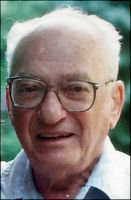What we don't know
 An obituary in a recent Washington Post brought back a flood of memories for me, and reminded me of a topic I had been meaning to discuss but had put aside. Samuel S. Snyder is a name that should be familiar to many historians of computing—he authored an article on “Computer Advances Pioneered by the Cryptologic Organizations” for one of the first issues of the Annals of the History of Computing (Vol. 2 #1, January 1980). I recall how that article did a lot to elevate the status of the Annals as a serious journal, and I also recall how it was, and remained for many years, one of the rare windows into the world of codebreaking and computing accessible to people – like myself—without security clearances.
An obituary in a recent Washington Post brought back a flood of memories for me, and reminded me of a topic I had been meaning to discuss but had put aside. Samuel S. Snyder is a name that should be familiar to many historians of computing—he authored an article on “Computer Advances Pioneered by the Cryptologic Organizations” for one of the first issues of the Annals of the History of Computing (Vol. 2 #1, January 1980). I recall how that article did a lot to elevate the status of the Annals as a serious journal, and I also recall how it was, and remained for many years, one of the rare windows into the world of codebreaking and computing accessible to people – like myself—without security clearances.
A few years after that article appeared, and after I had settled into the Washington area, I looked at it again and saw, to my surprise and delight, that Mr. Snyder had listed his home address, which happened to be a few blocks away from my own house in suburban Maryland! That led to a phone call, and from there a couple of memorable lunches with Sam and his wife at a local Chinese restaurant. Our conversations ranged through what I thought was the full spectrum of computing. Years later I realized that he left out a few topics, including the significant role he played in codebreaking. Some of this has recently been declassified, and the Post obituary hints at more. Sam’s discretion must have been the reason the National Security Agency allowed him to publish that Annals article—the NSA trusted him, and they knew he would not reveal anything, to me or anyone else, that he was not supposed to reveal.
And that brings me back to the topic I had been meaning to discuss. There is the computer history that we know, from the numerous publications, oral histories, archives, and museum exhibitions that have appeared in recent decades. There is the history we don’t yet know. We’re working on that. Finally, there is the history that we don’t know, and we don’t even know that we don’t know it. That last category worries me. Sam Snyder must have known a lot of it, but he would never have told us.

